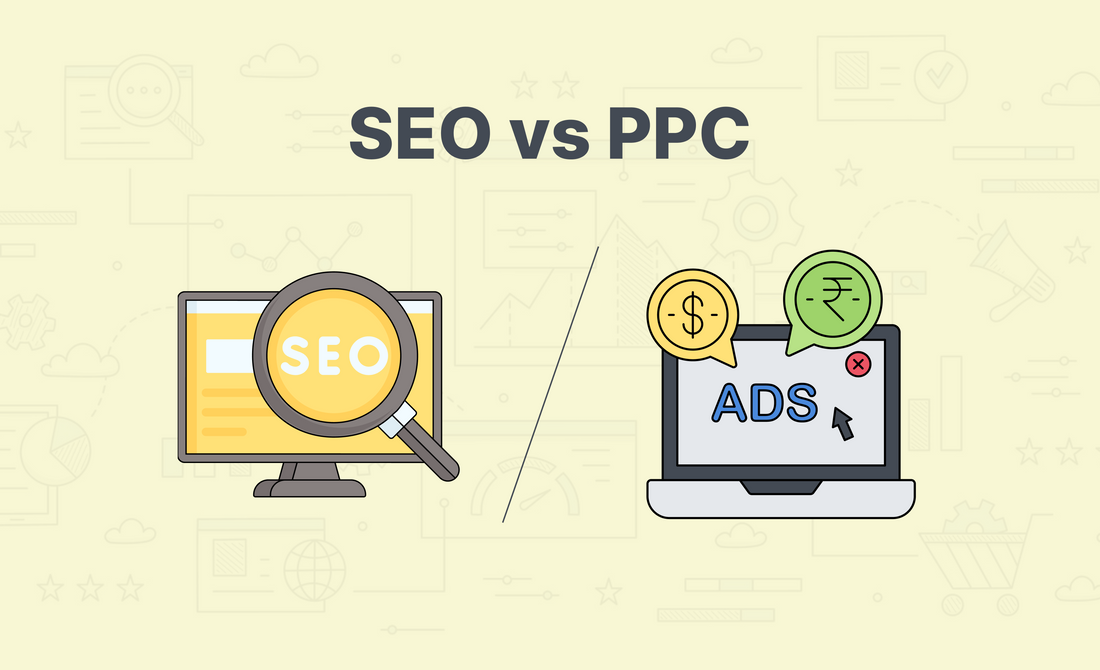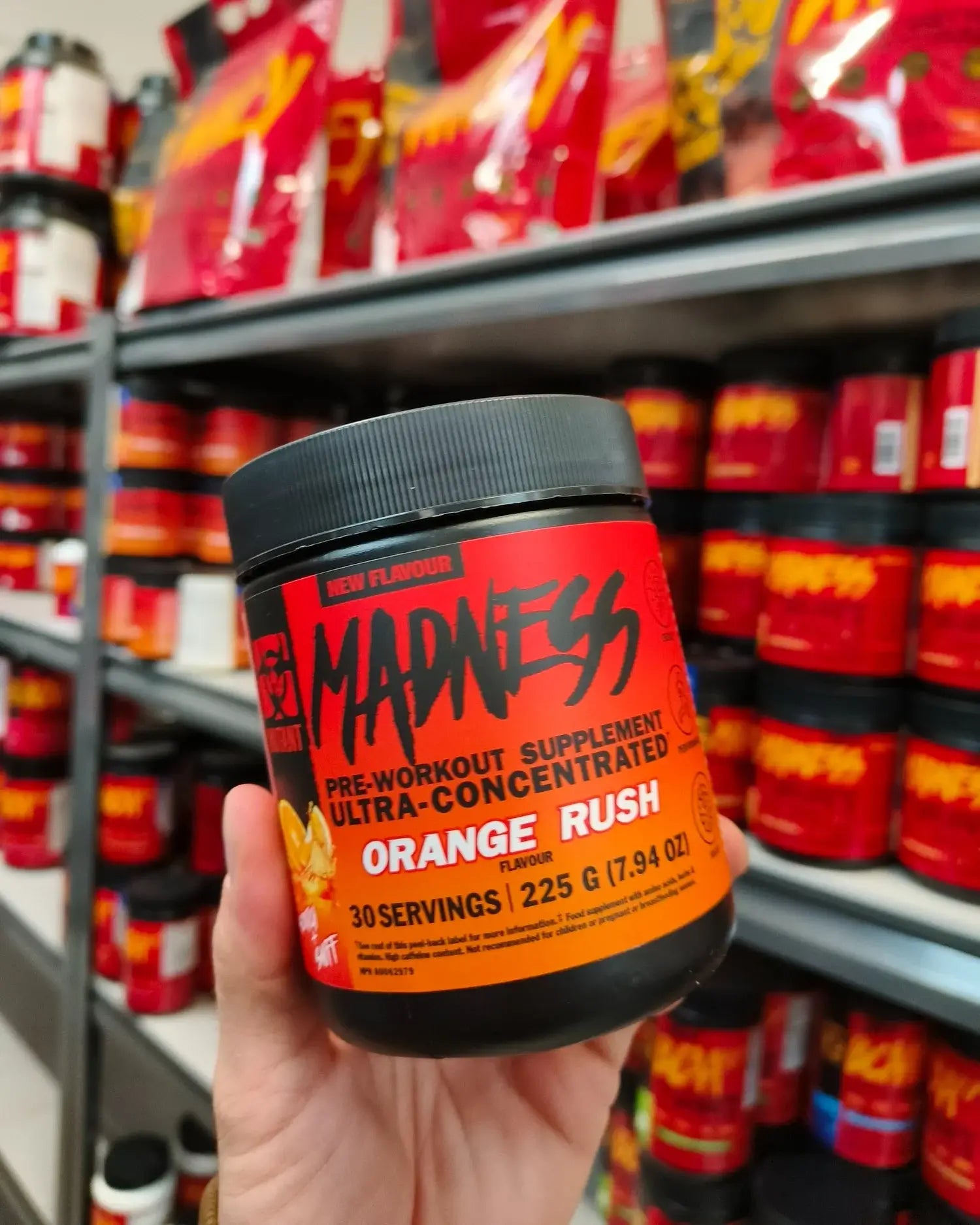SEO vs PPC: What’s Right for Your Shopify Store?
PPC
SEO
SEO for Shopify

When it comes to attracting traffic to your Shopify store, the big question isn’t just how, but which.
Should you play the long game with SEO or make a quick jump with PPC campaigns?
Well, the answer isn’t as simple as picking one over the other.
Today we will delve deep into SEO and PPC to help you decide which one is better for your Shopify store.
- Understanding The Basics of SEO and PPC for Your Shopify Store
- SEO (Search Engine Optimization)
- SEO vs PPC: Which Strategy Fits Your Shopify Store?
- What’s My Budget?
- How Soon Do I Need Results?
- What Are My Competitors Doing?
- The Final Verdict: Using Both SEO And PPC
- Use PPC for High-Value Keywords
- Remarketing for Maximum Conversions
- Data Sharing for Smarter Strategies
- Making the Call: Organic vs Paid? Or Both?
- Frequently Asked Questions
Understanding The Basics of SEO and PPC for Your Shopify Store
Let’s start with a quick refresher.
SEO (Search Engine Optimization) -
SEO is more like planting a garden. Just like you invest your time during the growth process of a plant, similarly you invest time and effort, ensuring your site is optimized for keywords, user experience, and technical performance.
With the passage of time, the results grow organically, drawing in potential customers without paying for clicks.
Also read: A guide to White Hat SEO vs Black Hat SEO.
PPC (Pay-per-Click)-
On the other hand, PPC (also commonly known as Paid advertising) is more like hanging billboards on a prime location.
We are talking about Google Ads, Facebook Ads, and Instagram promotions. They are mostly about paying to appear in front of your audience instantly.
Both have their unique features, but the question still remains: What’s right for you? To answer that, let’s explore the pros and cons to find the best fit.
The Great Face-Off: Pros and Cons of SEO and PPC
SEO: The Long-Term Player
Pros:
- Once your pages rank well, organic traffic comes in without any recurring costs.
- High-ranking pages are often seen as trustworthy by users, improving brand credibility.
- The efforts you put in now can yield results for months or even years.
Cons:
- It takes patience. SEO isn’t an overnight miracle.
- Google’s algorithm updates can disrupt your rankings.
- Effective SEO requires knowledge of keyword optimization, technical fixes, and content creation.
PPC: The Speed Demon
Pros:
- Launch an ad, and voilà—you’re at the top of search results.
- Target tailored audiences by location, interests, behaviors, and more.
- With clear analytics, you know exactly what you’re getting from your investment.
Cons:
- Once you stop paying, the traffic stops flowing.
- High-demand keywords can quickly drive up your costs.
- Users may get tired of seeing repetitive ads, reducing their effectiveness.
SEO vs PPC: Which Strategy Fits Your Shopify Store?
Now comes the critical question: Should you invest in SEO or go all-in with PPC? The answer lies in your goals.
Choose SEO if:
- You want sustainable traffic and are playing the long game.
- Your store targets informational queries or niche keywords with less competition.
- You’re willing to invest in creating valuable content, like blogs and guides.
Also read: How to create a SEO friendly blog on Shopify.
Choose PPC if:
- You’ve got a new product launch or seasonal sale to promote
- Your store competes in a highly saturated market, and you need instant visibility.
- You have a clear understanding of customer acquisition costs and profit margins.
- SEO vs PPC: What Shopify Store Owners Should Consider?
When deciding between SEO and PPC, ask yourself:
What’s My Budget?
Your marketing strategy is largely determined by your budget. Since SEO doesn't require a recurring financial investment, it can be an attractive choice if your store is running on a tight budget.
However, it’s important to note that while SEO doesn’t charge you for clicks, it demands an upfront investment in terms of tools, expertise, and time.
This can include improving the technical aspects of your website, generating excellent content, or engaging an SEO consultant.
Conversely, PPC campaigns need a consistent flow of revenue in order to be visible. With PPC, you pay for every click your ad generates, and the costs can quickly escalate, especially if you’re targeting high-demand keywords.
That said, PPC provides immediate results, making it worth the investment if you have the resources to back it up. Businesses with larger budgets can comfortably allocate funds to both PPC campaigns and a long-term SEO strategy to maximize their reach.
How Soon Do I Need Results?
Another important consideration is time. If your store needs immediate traffic—say, during a holiday season or a flash sale—PPC is your best bet. With paid advertisements, you can almost immediately position your store at the top of search results, bringing in time-sensitive customers.
For example, a Black Friday campaign might benefit from a PPC boost to attract deal-hunters at the moment.
On the other hand, SEO is the best option if you're looking for a long-term plan that generates consistent and sustainable traffic. Although SEO doesn't provide immediate results, your efforts can be repaid over the course of months or even years.
What Are My Competitors Doing?
Knowing the strategies used by competitors can help you improve your own plan. If competitors dominate organic search rankings for high-traffic keywords, breaking into that space with SEO alone might take years.
In this case, PPC can serve as a shortcut to level the playing field and capture your audience’s attention.
On the other hand, concentrating on SEO could be a calculated move to set oneself apart if your rivals mainly use sponsored advertisements.
Offering excellent, well-optimized content will help you establish your store as a reliable source and draw customers who prefer organic results over paid promotions.
Pro Tip: Use tools like SEMrush or Ahrefs to analyze your competitors’ SEO and PPC strategies. This will help you identify gaps and opportunities for your store.
The Final Verdict: Using Both SEO And PPC
Why choose one when you can leverage the strengths of both? By combining SEO and PPC, you create a balanced strategy that maximizes visibility and drives conversions.
How to Combine the Two:
Use PPC for High-Value Keywords
High-value keywords—those that are highly competitive and have a high search volume—are often challenging to rank for organically, especially in the short term.
PPC provides a way to capture traffic for these keywords by bidding for ad placement at the top of search results.
For example, if you sell premium organic skincare, keywords like “best organic face cream” may require substantial time and effort to rank for through SEO. PPC allows you to target these keywords instantly, driving immediate traffic to your Shopify store.
Meanwhile, focus your SEO efforts on long-tail keywords, such as “affordable organic face cream for sensitive skin.” It is easier to rank for these terms organically over time because they are less competitive and frequently indicate more buying intent.
Pro Tip: Use PPC as a stopgap solution while your SEO strategy for competitive keywords takes root.
Remarketing for Maximum Conversions
PPC allows you to retarget customers who have been to your store before but haven't made a purchase. For instance, a visitor who came to your website organically might look through your product pages but decide not to make a purchase.
Remarketing ads can re-engage these visitors, reminding them of products they viewed and enticing them to return. This strategy increases the likelihood of conversion and makes the most of your SEO-driven traffic.
Data Sharing for Smarter Strategies
PPC campaigns provide useful information, including the keywords that result in the most clicks, conversions, and sales. Use this information to refine your SEO strategy.
For example, if your PPC analytics indicate that "handmade leather wallets" convert incredibly well, you should optimize the content, metadata, and posts on your website around this keyword to draw in organic visitors.
Pro Tip: Regularly review your PPC performance metrics and apply the learnings to identify new keyword opportunities and content ideas for SEO.
Recommended Apps and Tools for Shopify SEO and PPC
Improve your efforts with these tools:
SEO Tools:
- Plug In SEO: An all-in-one solution for optimizing your Shopify store.
- Yoast SEO: A favorite for improving on-page SEO and readability.
- Google Search Console: Track your site’s performance in organic search.
PPC Tools:
- Google Ads Manager: The go-to platform for managing search campaigns.
- Facebook Ads Manager: Perfect for creating targeted social media ads.
Making the Call: Organic vs Paid? Or Both?
If your Shopify store is just getting started, PPC could help you get the visibility you need. With consistent traffic, SEO can help established stores become more credible and less dependent on sponsored advertisements.
That said, there’s no hard rule. Test both strategies, analyze the results, and refine your approach to see what works best for your audience.
Frequently Asked Questions
Which is better for your business: SEO or PPC?
The choice between SEO and PPC depends on your goals: SEO builds long-term organic traffic and brand authority, while PPC delivers quick results and targeted visibility. Ideally, a mix of both creates a balanced strategy for sustained success.
Is SEO worth it on Shopify?
Yes, SEO is worth it on Shopify. It builds sustainable organic traffic, enhances visibility, and reduces long-term marketing costs. With optimized content and proper keywords, SEO drives consistent growth, making it a valuable investment for Shopify store owners.
What pays more, SEO or PPC?
SEO often pays more in the long run by generating sustainable, cost-effective organic traffic without ongoing ad spend. However, PPC delivers immediate results, making it lucrative for short-term campaigns but potentially costly over time.
CrawlApps
At CrawlApps, we don’t just build Shopify stores—we create experiences that sell. We’re a bunch of problem-solvers who love turning ideas into stores that actually converts. Whether it’s fixing what’s broken or building something from scratch, we make sure every detail works in your favor. No fluff, no jargon—just real solutions that help your business grow. If you’re serious about Shopify, you’ll feel right at home with us.















